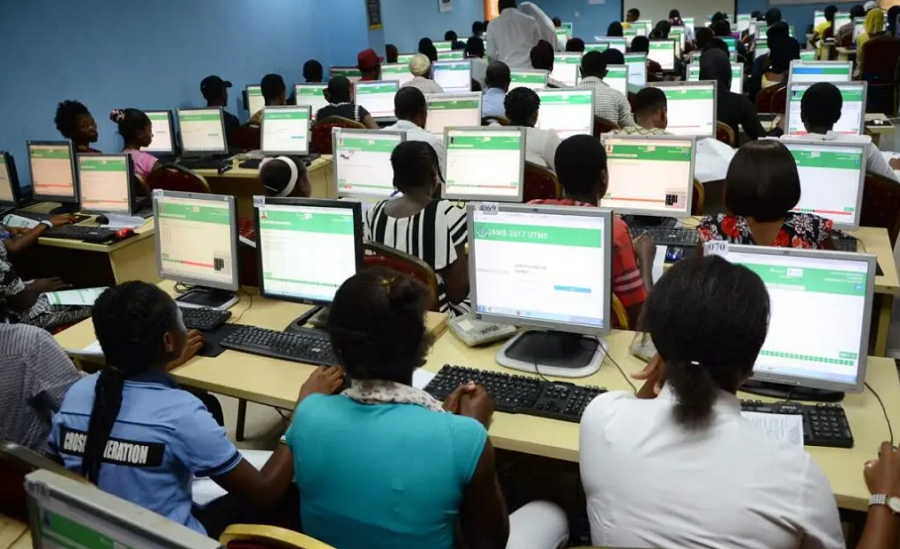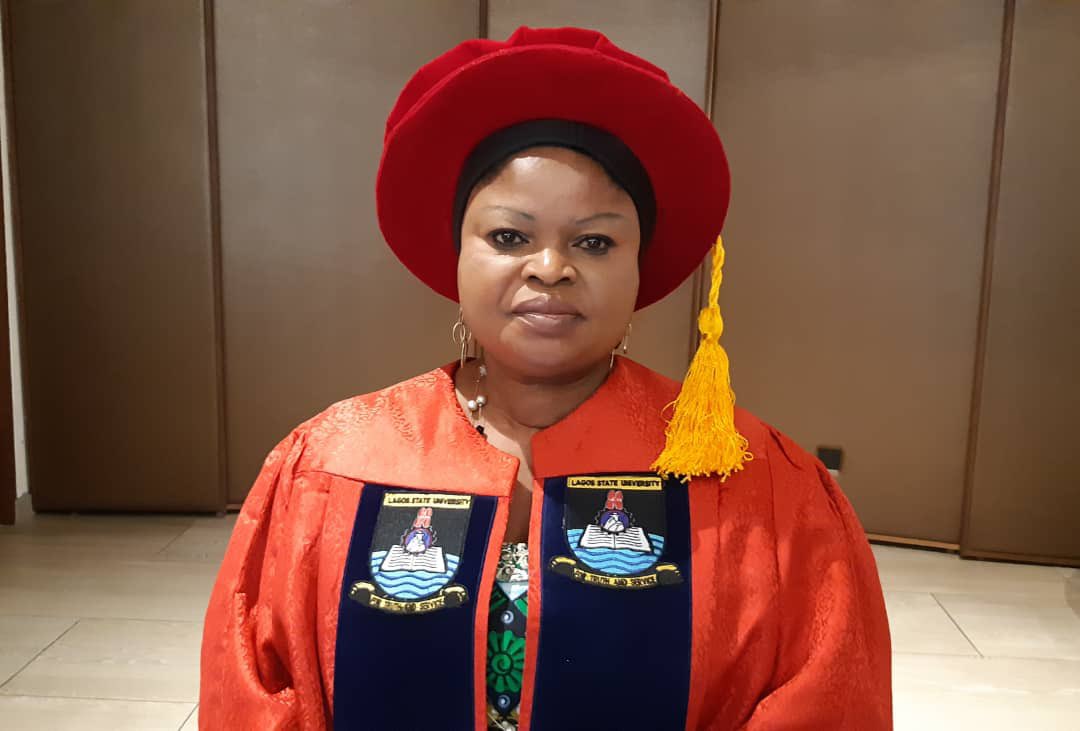In Oloba village, Ayedaade Local Government Area, Osun State, the only school building is a disgrace, and students learn in appalling conditions. In addition, all of the villages in the area lack electricity and a healthcare facility, despite the fact that a federal government agency that is fully connected to the national grid has its headquarters approximately 8 miles from the rural settlements. SODEEQ ATANDA reports.
One breezy Sunday, this reporter approached a woman in Oloba village named Oluwashina, who was resting her lower jaw on her hand beneath a tree. Gazing into a vacant space, the villager appeared to be contemplating something, but she was also enjoying the cool shade of the tree. Unlike city people, villagers lead a natural and uncomplicated life. They face few, if any, factory-related issues like air pollution, and they do not have to deal with traffic jams that eat up valuable time. Because they live in a closed community, everyone knows one another and leads a kinship-based life. People who live in cities frequently travel to their villages to spend their free time because of the stress of city life. But most of the time, villagers, who are mostly farmers who feed food to cities, do not have access to many life-enriching amenities. This is the situation in Oloba village and its surrounding villages, where access to healthcare, energy and education is dwindling on a daily basis.

St. Richard’s Primary School is the sole elementary school serving twelve communities in Oloba; yet, the physical state of all the school’s structures suggested years of disuse, so our reporter went to Oluwashina to find out why the school was in such horrible shape. Her response was shocking. “They are still using it. Teachers still teach our children from here and nearby villages there. So, learning still takes place there. You think they are not using it because of how it looks?” No one would expect to find pupils learning under a saggy ceiling in a bushy environment. You learn in a school, not in the valley of the shadow of death.
As it was Sunday, the woman told FIJ to return on Monday. When our reporter returned to the village as instructed, he found the school empty; locals indicated that the teachers had left. But it was just noon. Villagers linked FIJ with a teacher to further support their claim that the school was in use and that the government had put teachers there, but on two subsequent trips, there was still no teacher or student in the building.


WHERE PUPILS LEARN
In addition to serving the residents of Oloba village, the Osun State-owned primary school also provides education to people from nearby rural settlements such as Aaje, Olobi, Dalemo, Fate, and Elewiri villages. Although most city schoolchildren attend public schools in subpar conditions, students from these affected villages endure even worse conditions.

Education researcher Alice Jokodola found that government divestment in education and a shortage of teachers have seriously jeopardised the public education system. The 2023 Education Summit Committee of Osun State recently released findings that indicated 50 public schools in the state were vulnerable to attacks and that their infrastructure was deteriorating. Scholars have continued to dedicate resources to highlighting the issues that rural communities face, such as access to affordable healthcare and education. All of the teaching structures, with the exception of a block of three classrooms constructed 17 years ago, had a roof, but the toilets and the only water source were non-functional. FIJ noticed that St. Richard’s Primary School in Oloba village had two toilets, a borehole and three blocks of classrooms.

Surprisingly, the 17-year-old building was the only one where teaching took place. Normally, there would be no justification for a student to be taught in a space overrun by weeds. This reporter’s escape from wasp attacks during the course of inspecting the classrooms was only possible by chance. The state of the school was exacerbated by the dearth of tables and chairs; the old building was unsuitable for education; the headmaster and teachers had no easy access to educational resources; the majority of windows and doors had been removed, making it dangerous to store school supplies while also giving animals easy access. All of these factors put the teachers in a challenging position.
Due to differences in infrastructure and labour, research indicates that rural students are more likely than their counterparts in semi-urban and urban communities to drop out of school in primary or secondary school. According to Mary Abiodun Abioye’s doctoral thesis, “Retention and Efficiency of Qualified Teachers in Rural Nigerian Secondary Schools,” teachers in rural schools face issues related to low-quality learning environments and inadequate pay. In addition to the dearth of materials for sitting, every classroom floor was sandy, which likely contributed to the widespread destruction and disrepair that students and instructors had to deal with. The classroom that contained the teachers’ belongings was only partially protected by a car tyre, some wood and a fully functional wooden door that stood in an awkward position. This reporter was unable to speak with students during FIJ’s trips to the school; however, a teacher, Adekunle, said that pupils had ceased attending since they were finishing their term exams and just a few days remained until the end-of-term break. Corroborating Adekunle’s explanation, Olusina Phillips, fondly called Yellow in the village, explained that his children attended the school but were home because they had finished their exams for the term.
“That’s the only school my children attend. But they did not go today because there is no activity in school again after they finished their exams,” said Phillips, a father of five, while preparing food for his children on December 11 in the morning.
Further, FIJ noted that the European Union (EU), the Federal Government of Nigeria, UNICEF and the community had collaborated to provide the dysfunctional water system and toilets.

The villages are not connected to the national grid, so even though there are electric polls nearby, they do not have access to the nation’s electricity. As a result, they travel a considerable distance to charge their phones, which could take days to fully charge, in Gbongan town.
LOCAL LEADERS FIGHT FOR BETTER FACILITIES
Prior to the current state of affairs, the village’s leaders had long recognised the danger to education in their area and had been making every effort to keep the school open in the community so that the government would not shut it down at some point. They were afraid of a closure because long-term attempts to persuade the government to rebuild or renovate it had produced no fruitful results. Chief Olusegun Olaniran, Baale of Oloba, claims that the community recognises the need for education and has been travelling the state to draw the government’s attention to the problems facing the village and neighbouring communities, but to no avail.

“After the national election had been concluded, I wrote two letters to the federal lawmakers from our constituencies to bring our problems to their attention for possible intervention. I commissioned someone to take the letters to their offices at the Senate and House of Representatives with the hope that when they resumed office, they would meet it on their desk. We have not heard any response since then, not even an acknowledgement of the letter,” said the community head.
One of the letters was addressed to Oladebo Lanre Alomoleye, the House of Representatives member from Ayedaade/Isokan/Irewole Federal Constituency; and the other to Oyewumi Kamorudeen Olalere, representing Osun West Senatorial District at the Senate.
Without the support of the authorities, the impoverished community can only contribute money to purchase teaching materials and hope that a leader will one day emerge to solve the problems in their community. Olaniran said that through community engagements, the parents and village leaders had discussed numerous times how they could turn around the state of social facilities in their area. They have even spoken to government stakeholders and people they consider well-to-do to fast-track a response.
As part of their efforts, they also assigned men from the community to periodically weed the school, recognising that they would be helping to maintain it and provide a supportive atmosphere for their children who attended. “Due to our concern about harmattan fire accidents, we started cutting the weeds last week, and we hope to finish it soon,” said Phillips.
In 2020, the community collaborated with the Justice Development and Peace Commission (JDPC), a faith-based and non-profit organisation of the Catholic Church, to develop community-based needs assessment reports detailing the collective desires of the Oloba community. The reports were submitted to Folorunso Oladoyin, then Osun State Commissioner for Education, according to the community head.
The first report, “Oloba Communities Needs Assessment Report”, was dated March 2020, while the second one, “Promotion of Access to Health Care Delivery for Rural Dwellers in Oloba and Surrounding Communities of Ayedaade Local Government Area of Osun State, Nigeria”, was dated October 20. Since their submission, nothing has been done. A man named Alfa Akinpelu Ademola told FIJ that he recently gave the school a wooden door as a small way of bridging a gap. The management had been complaining that their office had no door and that domestic animals were stealing or scattering their belongings.
FEAR OF SHUTDOWN
“We are scared that the school might soon be completely abandoned, and we have done all we knew how to do but are yet to get any results. In my own way, I was the one who fixed a door to the staff office after a series of complaints by the teachers. We are really fighting hard to sustain this school for our children, but we are unable to achieve much on our own,” said Ademola, who is an education rights defender.
Adekunle, the teacher previously mentioned, affirmed Ademola’s claim regarding the door. Ademola said he realised the effect such a difficult situation must have had on the quality of education in the school and that he intended to do more if he had enough money. Ademola bemoaned the difficult economic circumstances, claiming that this year’s lack of rainfall affected his farm yields. Ademola believed that the government only gave consideration to the community during elections.
FIJ learnt that the school serves as a polling unit (PU) created by the Independent National Electoral Commission (INEC) for residents of the rural communities in the area to vote during elections. Traces of voter lists usually pasted at PUs were evident on the ageing school building.
Although the Joint Admissions and Matriculation Board (JAMB) owns the International Talent Resort Centre, a facility fully connected to the national grid, about eight miles away from Oloba, the village and the surrounding communities do not have access to electricity.
Taking FIJ down memory lane, the community chief explained that a previous closure of a local primary health clinic was due to a staffing shortage; this new revelation confirms their concern that the school may be closed in the near future.
On December 13, Bose, a different villager, gave FIJ a quick tour of the closed healthcare facility. Bose claimed that the village stopped pulling weeds because their years-long efforts to maintain it unclean had not resulted in the government returning to reopen it and assign staff. “If a pregnant woman feels like giving birth and her husband does not have a motorcycle to take her to the hospital on time, may God not let a terrible situation befall us,” he said.

Residents who spoke with FIJ said they just wanted a better learning environment for their children. One of them, Bose, said, “We are not even asking for fans to be in the school. We just want the government to help us provide a good building and other basic things to aid teaching and learning.”
Responding to FIJ’s findings, Eluwole Dipo, Osun State Commissioner for Education, said that the community had to write the government about the situation. That way, the government would look into the matter, he said. “Let them write a letter about the problem to the government, and we will look into it.”
Subscribe
Be the first to receive special investigative reports and features in your inbox.















